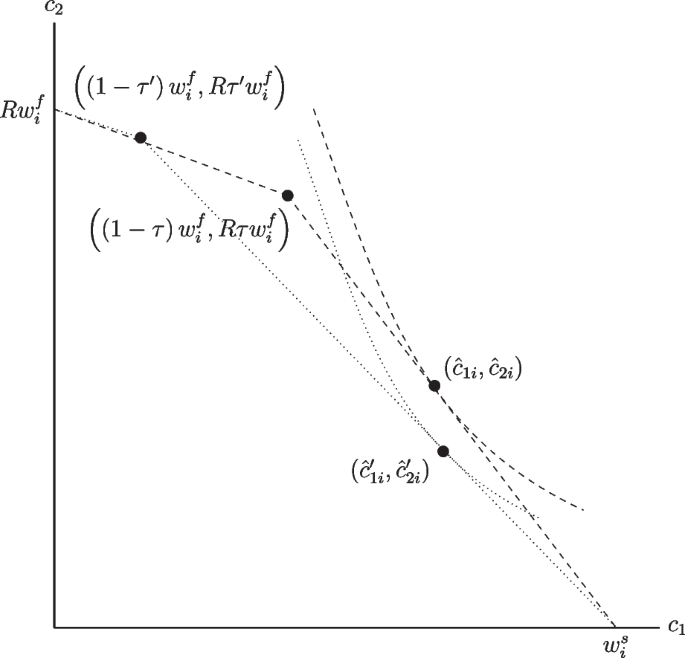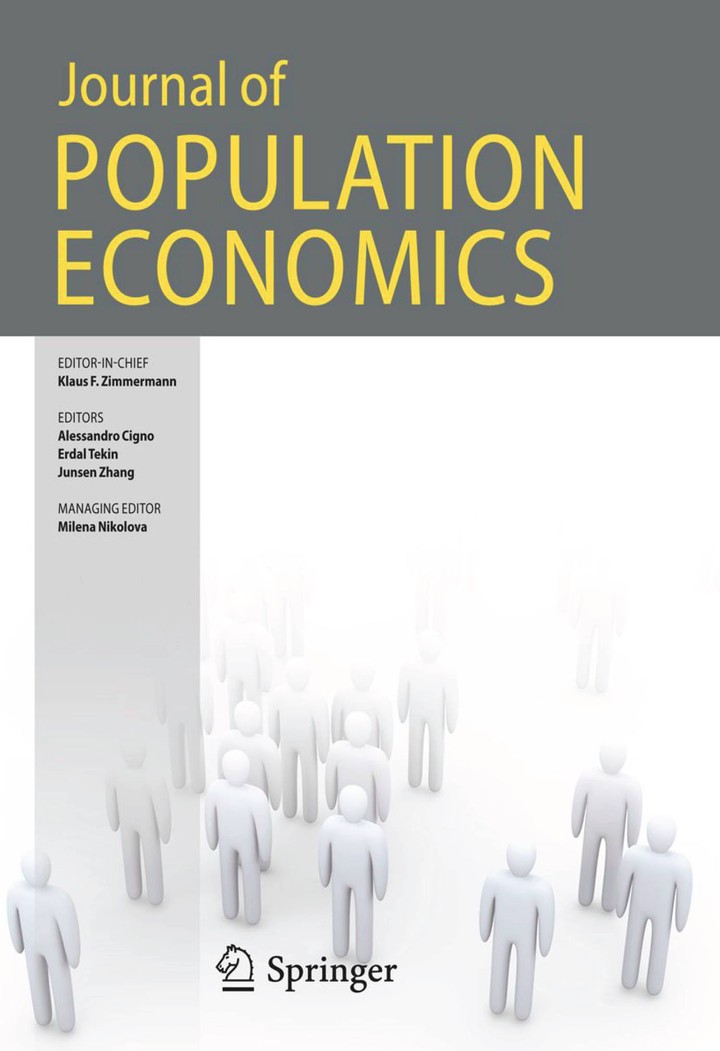Mandatory retirement savings in the presence of an informal labor market
IF 3
2区 经济学
引用次数: 1
Abstract
Abstract This paper shows how mandating workers to save more for retirement can lead them to work informally and save less. Consider a worker who is more productive in the formal sector but works informally to avoid mandatory retirement contributions. Lowering the contribution rate (the share of wages mandated to be saved) will paradoxically increase her retirement savings. The reason for this is that working informally acts as borrowing against mandatory savings. The implicit cost of such borrowing, and hence the opportunity cost of working informally, rises as the contribution rate drops. This creates a substitution effect favoring formal work, driving the worker towards the formal sector. As her formal income increases, the base for her mandatory contributions rises, expanding her retirement savings. Therefore, the optimal contribution rate is no greater than the highest contribution rate under which the worker prefers to work exclusively in the formal sector.

在存在非正式劳动力市场的情况下强制性退休储蓄
摘要:本文展示了强制工人为退休储蓄更多的如何导致他们非正式地工作和储蓄更少。考虑一个工人,他在正规部门工作效率更高,但为了避免强制性退休缴款而从事非正式工作。降低缴费率(强制储蓄的工资份额)将矛盾地增加她的退休储蓄。其原因是,非正式的工作就像是对强制性储蓄的借贷。这种借贷的隐性成本,以及非正式工作的机会成本,随着贡献率的下降而上升。这就产生了有利于正规工作的替代效应,驱使工人转向正规部门。随着她正式收入的增加,她的强制性供款基数也在增加,从而扩大了她的退休储蓄。因此,最优缴费率不大于工人愿意只在正规部门工作的最高缴费率。
本文章由计算机程序翻译,如有差异,请以英文原文为准。
求助全文
约1分钟内获得全文
求助全文
来源期刊

Journal of Population Economics
Multiple-
CiteScore
9.60
自引率
6.60%
发文量
50
期刊介绍:
The Journal of Population Economics is an international quarterly that publishes original theoretical and applied research in all areas of population economics.
Micro-level topics examine individual, household or family behavior, including household formation, marriage, divorce, fertility choices, education, labor supply, migration, health, risky behavior and aging. Macro-level investigations may address such issues as economic growth with exogenous or endogenous population evolution, population policy, savings and pensions, social security, housing, and health care.
The journal also features research into economic approaches to human biology, the relationship between population dynamics and public choice, and the impact of population on the distribution of income and wealth. Lastly, readers will find papers dealing with policy issues and development problems that are relevant to population issues.The journal is published in collaboration with POP at UNU-MERIT, the Global Labor Organization (GLO) and the European Society for Population Economics (ESPE).Officially cited as: J Popul Econ Factor (RePEc): 13.576 (July 2018) Rank 69 of 2102 journals listed in RePEc
 求助内容:
求助内容: 应助结果提醒方式:
应助结果提醒方式:


